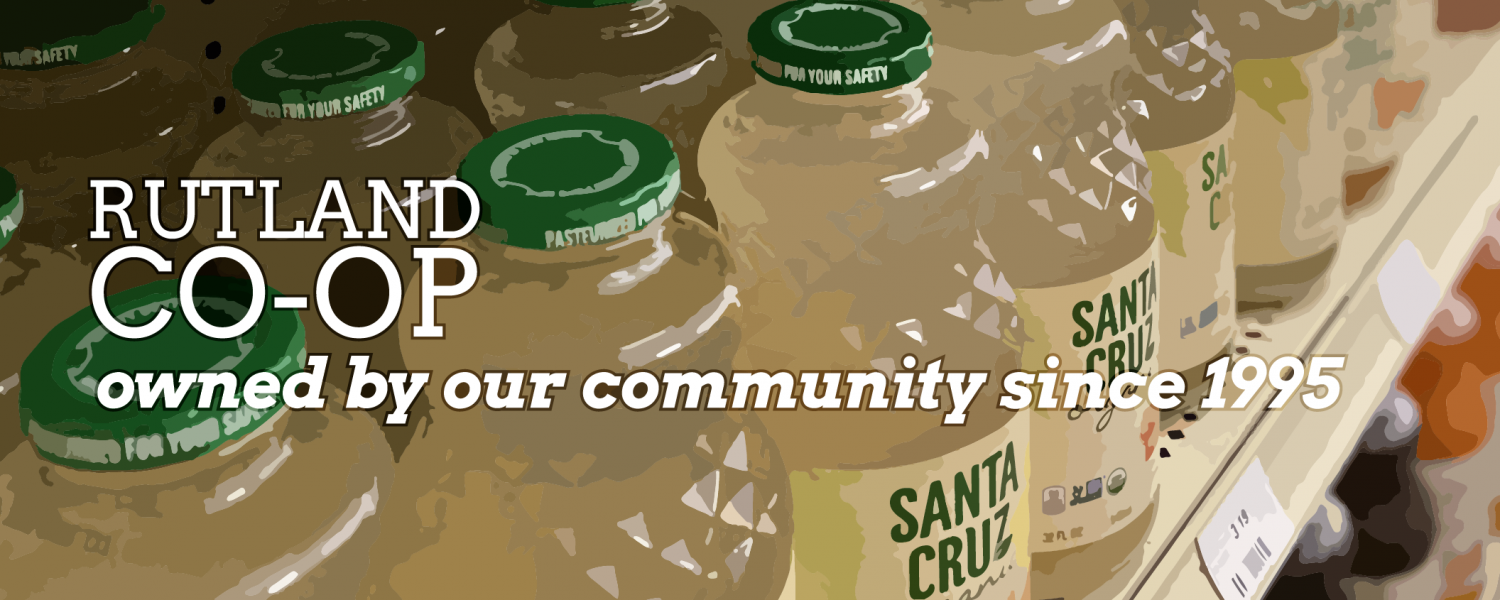The Rutland Area Food Co-op is a community-owned and operated business committed to improving the quality of life for people in the Rutland region through the sale of whole and natural food products.
Like all Co-ops, we operate on the 7 Cooperative Principles:
Images designed for the Rutland Co-op by Colleen Wilcox of Wander On Words
1. Voluntary and Open Membership
Cooperatives are voluntary organizations, open to all persons able to use their services and willing to accept the responsibilities of membership, without gender, social, racial, political, or religious discrimination.
2. Democratic Member Control
Cooperatives are democratic organizations controlled by their members, who actively participate in setting policies and making decisions. The elected representatives are accountable to the membership. In primary cooperatives, members have equal voting rights (one member, one vote) and cooperatives at other levels are organized in a democratic manner.
3. Members’ Economic Participation
Members contribute equitably to, and democratically control, the capital of their cooperative. At least part of that capital is usually the common property of the cooperative. Members usually receive limited compensation, if any, on capital subscribed as a condition of membership. Members allocate surpluses for any or all of the following purposes: developing the cooperative, possibly by setting up reserves, part of which at least would be indivisible; benefiting members in proportion to their transactions with the cooperative; and supporting other activities approved by the membership.
4. Autonomy and Independence
Cooperatives are autonomous, self-help organizations controlled by their members. If they enter into agreements with other organizations, including governments, or raise capital from external sources, they do so on terms that ensure democratic control by their members and maintain their cooperative autonomy.
5. Education, Training, and Information
Cooperatives provide education and training for their members, elected representatives, managers, and employees so they can contribute effectively to the development of their cooperatives. They inform the general public, particularly young people and opinion leaders, about the nature and benefits of cooperation.
6. Cooperation Among Cooperatives
Cooperatives serve their members most effectively and strengthen the cooperative movement by working together through local, national, regional, and international structures.
7. Concern for the Community
While focusing on member needs, cooperatives work for the sustainable development of their communities through policies accepted by their members.
Whether related to accessibility, race, gender, ethnicity, age, or sexual orientation, it’s important to find intentional ways to grow in our understanding and support of each other. We are diverse by nature and inclusive by choice. RAFC’s commitment to fostering an inclusive environment is of fundamental importance. Quite simply, we believe that diversity makes us, as individuals and as a community, stronger and more resilient.
In addition, the Co-op has six distinct goals of operation:
- Access and Affordability: Residents of Rutland and surrounding communities have affordable access to minimally processed, minimally packaged, organic, and ecologically sustainable food and products, promoting the health of individuals and the environment.
- Support for Local, Ethical, and Co-operative Producers: A thriving market for local, regional, fair trade, and co-operative producers of food and household products, fostering economic sustainability and community resilience.
- Community Building and Education: A vibrant community hub where owners and patrons can collaborate, learn, and empower each other through educational programs and shared experiences.
- Values-driven Collaboration and Support: Partnerships and cooperation with individuals and organizations sharing similar goals, amplifying efforts towards community well-being and sustainability.
- Employee Well-being and Engagement: A supportive workplace culture that values and respects employees, providing opportunities for education, growth, and fair compensation, ensuring a motivated and dedicated team.
- Welcoming and Positive Shopping Environment: An inclusive and accessible space that embraces diversity and promotes a sense of belonging for all members of the community.
